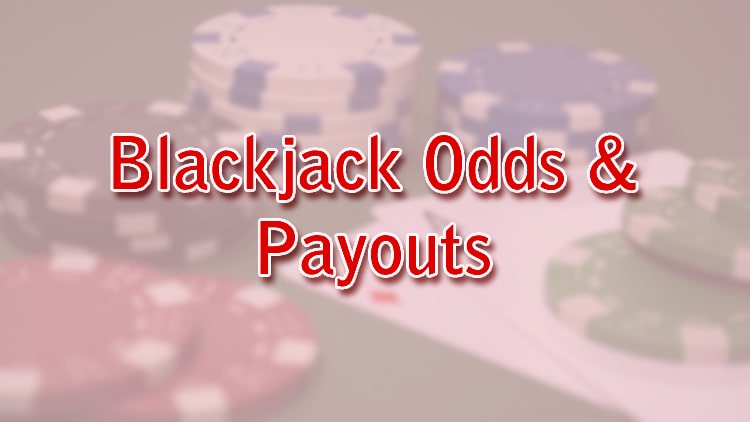
Getting to grips with the game of blackjack's odds and payouts can help build a solid foundation of knowledge in this game of chance and strategy. In this comprehensive guide, we delve into the intricacies of blackjack odds and payouts, as well as explain the house edge in this game. Read on to learn more.
Blackjack Odds Payout
Blackjack, a classic casino game, is a blend of skill and chance. A player's understanding of blackjack odds and payouts can significantly help. In essence, the odds represent the likelihood of a particular event occurring, while the payout is the potential return on a winning bet.
Blackjack odds are usually represented as a percentage, indicating the probability of a specific outcome. For instance, if a player has a blackjack odds of 5%, it means there is a 5% chance of that specific event happening.
On the other hand, blackjack payouts refer to the amount a player stands to win if their bet is successful. The payout is typically represented as a ratio, such as 1:1 or 3:2, indicating that a player stands to win £1 for every £1 bet or £3 for every £2 bet, respectively.
Blackjack Rules
Before diving into the depths of blackjack odds and payouts, understanding the basic rules of the game is essential. Here are some key rules:
- Each card in a blackjack game has a unique value. Cards from 2 to 10 hold their face value, face cards (Jack, Queen, and King) each have a value of 10, and Aces can count as either 1 or 11, depending on which value benefits your hand.
- The aim of the game is to have a hand value closer to 21 than the dealer, without exceeding 21. If your hand value goes over 21, it's considered a 'bust', and you lose the round.
- Getting a hand value of exactly 21 is considered a 'blackjack', resulting in an automatic win, unless the dealer also has a blackjack, which leads to a 'push' or tie.
Odds Of Winning At Blackjack
In the world of blackjack, there are two sets of odds to consider: the player's odds and the dealer's odds. Understanding both sets of odds can provide valuable insights into the game's dynamics.
Player's Odds
The player's odds in blackjack fluctuate based on the game's rules, the player's strategy, and the composition of their hand. By adhering to basic strategy guidelines – optimal actions based on mathematical probabilities – players can potentially reduce the house edge to around 0.5%.
Dealer's Odds
The dealer's odds in blackjack are slightly more favourable due to the game's rules. The dealer always acts last, giving them the advantage of observing all the players' actions before deciding their course of action. Furthermore, if a player busts, the dealer wins instantly, regardless of how their hand plays out at the end.
What Are Blackjack Payouts?
Blackjack payouts vary based on the type of win:
- Winning a hand against the dealer usually pays out at even money (1:1). This means if you bet £10 and win, you will receive £10 plus your original bet.
- If you double down and win against the dealer, the payout ratio remains the same (1:1), but the amount won doubles due to the increased bet.
- Landing a blackjack results in a higher payout, typically 3:2 or 6:5, depending on the table rules. This means if you bet £10 and get a blackjack, you could win £15 (for 3:2) or £12 (for 6:5), plus your original bet.
Early Payout Blackjack
In certain blackjack variations, an early payout option allows players to take a payout before completing their hand. This option may be beneficial if a player believes their hand is likely to lose, allowing them to potentially minimise their losses. However, this option is not available in all blackjack games, so be sure to check the rules of the specific game before playing.
What Is The Blackjack House Advantage?
The house advantage, or house edge, is the statistical advantage that the casino has over the player.
In blackjack, the dealer's positional advantage (going last) and the game's rules (if a player goes bust, they lose their bet to the house, regardless of what happens in the dealer's turn) contribute to the house edge. The house edge sits around 2-4% in blackjack, but this can be reduced to as low as 0.5% if basic strategy is effectively implemented.
However, the house edge can never be fully eliminated, which means that no matter how much skill a player possesses, there is still an element of chance in this game and winning can never be guaranteed.
How To Pick The Best Blackjack Game?
Choosing the right blackjack game can significantly impact your gaming experience. Consider factors such as the game's rules (such as whether the dealer stands or hits on 17), the number of decks used, the blackjack payouts, and the house edge.
Remember, understanding the game's mechanics and odds can improve your blackjack playing strategy and potentially lower the house edge, but it can never eliminate it.
Play responsibly and remember that while blackjack involves elements of skill, it is ultimately a game of chance. Set a budget and stick to it. Never bet money you aren't comfortable losing.
*All values (Bet Levels, Maximum Wins, etc.) mentioned in relation to this game are subject to change at any time. Game features mentioned may not be available in some jurisdictions.
